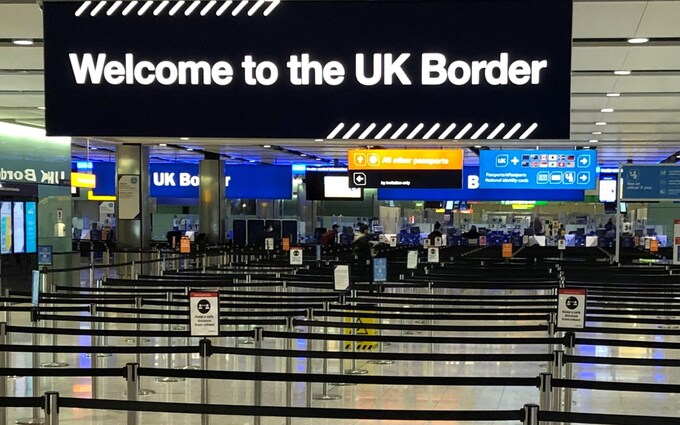The economic case for mass migration has finally collapsed.
Rather than turbocharging growth, immigration is placing near-unbearable pressure on public services, housing and infrastructure
SAM ASHWORTH-HAYES27 February 2024 •

It was a delightful theory. Opening Britain’s borders would bring an influx of human capital that would leave the country richer, the tax burden lower, public services stronger and our culture enriched. And, as a theory, it had the great benefit of being all but impossible to falsify unless someone was daft enough to actually try it in practice.
Unfortunately, thanks to the Conservatives, this has now happened. And the resulting confrontation with reality has demolished a truly beautiful idea. Report after report, dataset after dataset, is hammering home a simple message: mass migration is not making Britain better off.
The latest entry in the list has taken a sledgehammer to the argument that immigration is desperately needed to prop up our crumbling public services.
As the Institute for Fiscal Studies argues, the “fiscal headroom” generated by immigration is largely illusory. Rather than the result of carefully selecting for high income, low-cost arrivals, it has rather more to do with the way the Office for Budget Responsibility comes up with its figures – plugging in spending plans that don’t account for the greater demands of a larger population. Once this is factored in, the migration dividend dissipates.
This shouldn’t be surprising. Even before the Conservatives reshaped the immigration system to bring in huge numbers of care workers and “students”, study after study showed that non-EU migrants were a significant fiscal drain.
This is as much about the generosity of the British state as it is anything else; the average UK citizen receives more in public services than they pay in taxes. But it does mean that in order for migrants to pay their way, they need to earn very high wages or leave after their working years. Unsurprisingly, many don’t.
The problems don’t end there. Adding more people to an economy will almost always make it larger, but that doesn’t mean it makes the people already here better off. Britain has a serious shortage of housing, congested infrastructure, and increasing conflict between communities with radically different visions of what the country should be.
Adding in large numbers of people from around the world does very little to improve any of this, and makes much of it actively worse. When national newspapers are running reports on the massive surges in investment needed just to keep pace with the influx of new arrivals, something has gone badly wrong. It’s hard not to think that Britain is following Canada into its third world-style population trap, where the cost of providing tools, housing and infrastructure for new arrivals has brought income growth to a halt.
With the economic argument for migration in disarray, its advocates have switched to emphasising the nebulous benefits of diversity, or arguing that it could be economic rocket fuel if we could just reform planning, taxes, benefits, policing, infrastructure, energy, education, water – the list keeps going. But arguing that this means we don’t need to cut current levels of migration is putting the cart well before the horse, even leaving out the point that many people may question whether reshaping their country to make immigration a small positive is desirable.
Time after time, the British public have voted to cut immigration. Elites have written this off as ignorance. They should consider instead that it is simply rational self-interest. DT.
.jpeg)